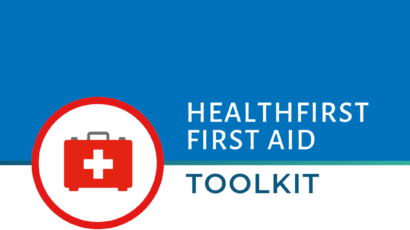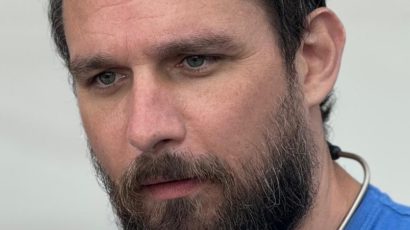Let’s Talk About Relationships and Sex Education
by HealthFirst Midwife Mags Sheldon
I was 13 years old and sitting in a biology lab with the other girls in my class. We had been separated from the boys for a lesson that we all assumed was about Relationships and Sex Education. We had high hopes for this highly anticipated lesson because sex was not a topic many of us could talk about with our parents.
Our biology teacher entered the lab, pale and sweating. She pulled a high stool out from behind one of the benches and sat down in front of us. Staring at the floor, she monosyllabically delivered the following, well-rehearsed, short speech. “You should only have sex with one person in your life, your husband. Sex is not pleasurable, it’s awkward and painful, but bearable because it’s over in seconds, it’s something you just have to endure, and you only have to do it if you want to have a baby.”
One of the more confident girls in the group raised her hand, only to be told to put it down, questions were not allowed and there was nothing about ‘it’ in our upcoming biology test. So, there it was, my first and only sex education lesson at my Catholic comprehensive school in Scotland. I left the lesson believing that sex was something to be afraid of, that it was dirty and shameful, and I distinctly remember turning to the girl next to me and saying, “Well, I am never doing that!”
Generation Z has instant access to an information superhighway
My experience, unfortunately, is a common one. In the 1980s, we did not have many opportunities to look for answers. Today the world is a different place. The way young people interact with the world has fundamentally changed. They have never known anything other than the Internet-driven reality of the 21st century. Generation Z is the generation that learns about everything online, including sex and relationships, and has instant access to a 24/7 information superhighway. Using a framework for Relationships and Sex Education (RSE) that was developed before the invention of TikTok, Snapchat and Instagram just does not appeal to the young people of today.
When our children are growing up, it is our job as parents or caregivers to keep them healthy and safe. We teach them to wear a seatbelt, wear a helmet, use sunscreen, and not to eat too many sweets. We teach them how to take care of their bodies and get along with others. But why don’t we have the same philosophy when it comes to the sexual health of our children?
What is Relationships and Sex Education (RSE)?
RSE is the teaching and learning about a wide range of topics related to sex, sexuality, and relationships, such as puberty, reproduction, contraception, relationships, sexual violence, and gender. RSE can be conducted at home by parents/caregivers, in schools by teachers, or it can be outsourced to specialised educators. The World Health Organisation (WHO) states, “Comprehensive sexuality education plays a central role in the preparation of young people for a safe, productive and fulfilling life in a world where HIV and AIDS, sexually transmitted infections, unintended pregnancies, gender-based violence and gender inequality still pose a serious threat to their well-being.” 1
According to UNESCO’s International guidance on sexuality education, only 34% of young people worldwide know about HIV prevention and transmission and in some countries, two out of three girls have no idea what happens to them when they menstruate.2 Because of this, many entering adulthood do not know how to protect their bodies during sexual activity. Neither do they know how to help reduce sexual violence, and how to have consensual, respectful relationships. How can we ensure that our young people are educated, smart, healthy, and safe if we do not adequately inform them so they can make good choices for themselves?
RSE is a hot topic
RSE has become a hot topic in many countries, with inaccurate and sensational headlines responding to very emotive issues. Media coverage often misrepresents what is happening in schools and raises doubts about the validity and appropriateness of topics discussed, as well as the credibility of teachers. Ultimately, this can lead to some parents taking their children out of RSE classes altogether. One of their main arguments being that RSE informs young people about sexual activities that they would not otherwise know about. For example, it is argued that discussing pornography makes young people more likely to view it, or that comprehensive education encourages early sexual activity.
According to the American College of Obstetricians and Gynecologists’ Committee on Adolescent Health Care, numerous studies over the past 20 years have consistently shown that comprehensive RSE in schools does not encourage young people to have sex earlier, or more often.3 When RSE is implemented in a safe and supportive learning environment, it has many positive and lifelong effects on young adult’s health and well-being. The college goes on to add that, “studies have demonstrated that comprehensive sexuality education programs reduce the rates of sexual activity, sexual risk behaviors (e.g., number of partners and unprotected intercourse), sexually transmitted infections, and adolescent pregnancy.”4
Who should educate young people?
Some argue that it is the parents’ job to educate young people about relationships and sex, not schools. But leaving this to parents assumes that they have the confidence, understanding, and knowledge to talk openly with their children about these often sensitive and complex topics. While parents play a key role in shaping their children’s views about sexual behaviour, they often underestimate their role in educating their children about sex. As a result, many adolescents report that they talk little, or not at all, with their parents about sex. Many parents feel they need support and/or professional expertise to guide the way.
Understanding the purpose and content of RSE
Parents should have every opportunity to understand the purpose and content of a RSE programme and the school’s approach. Good communication and opportunities for parents to ask questions helps build trust in the curriculum and is critical to avoid the withdrawal of students from RSE lessons.
As a midwife with more than twenty years’ experience teaching RSE in International schools in Switzerland, I take my role very seriously. I firmly believe that comprehensive, age-appropriate RSE provides young people with the knowledge they need in order to develop from childhood into adulthood, equipped with the information required to make healthy and responsible choices for themselves. I witness first-hand young people’s need for this knowledge. When given the opportunity they engage, debate, and discuss issues in a safe environment with an experienced, non-judgmental, and credible educator.
As parents and educators, we must recognise that RSE is a complex and rapidly evolving field that is often challenging for parents and educators, but it is a challenge we need to address to ensure that our young people are educated appropriately. Effective RSE requires close collaboration between parents, schools, and RSE providers. The world has changed and RSE must evolve and adapt to meet the needs of schools, parents, and the young people of today.
HealthFirst has a comprehensive Relationships and Sex Education programme which is run in many international schools in Switzerland.
This article was previously published in the International School Parent magazine.
References
- https://www.who.int/publications/m/item/9789231002595
- https://www.unesco.org/en/articles/why-comprehensive-sexuality-education-important
- https://www.acog.org/clinical/clinical-guidance/committee-opinion/articles/2016/11/comprehensive-sexuality-education,
- https://www.acog.org/clinical/clinical-guidance/committee-opinion/articles/2016/11/comprehensive-sexuality-education





